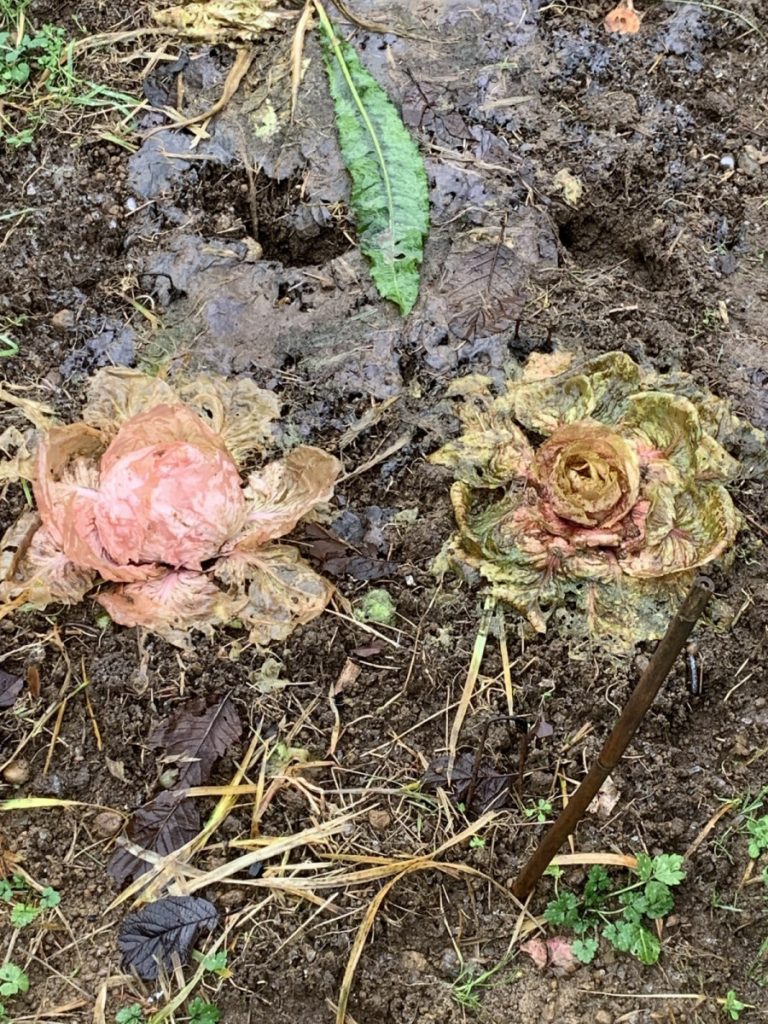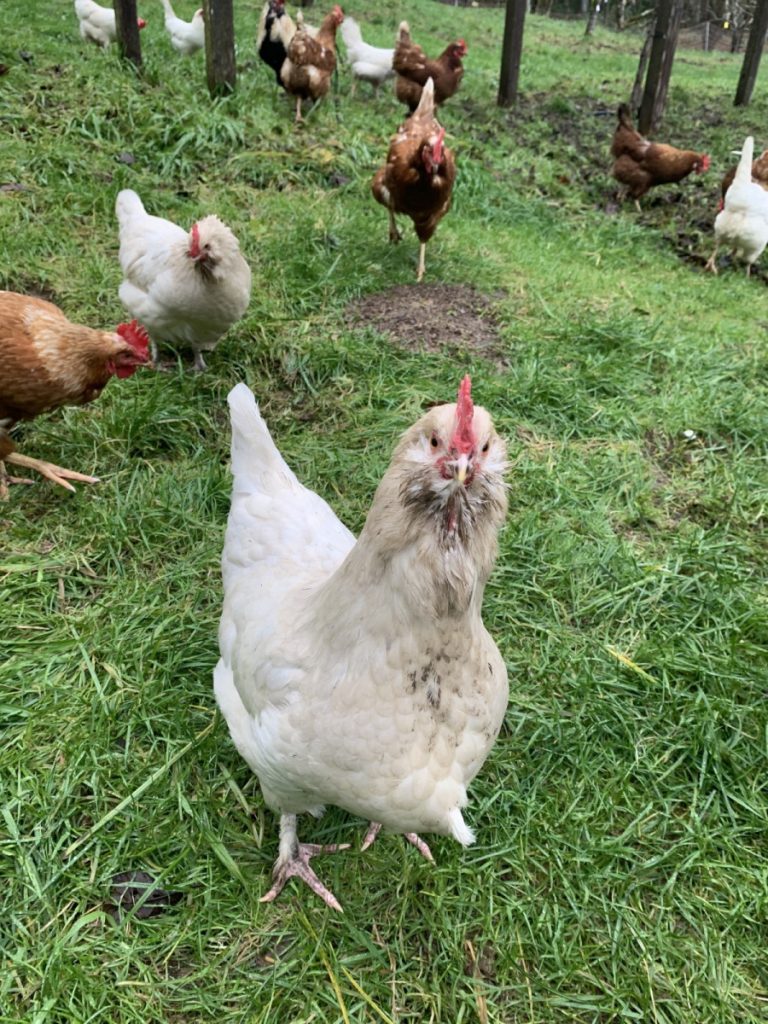Taste: What You’re Missing – Chapters 7&8 (01/12/22)
“Darren just assumed that his young daughters were mimicking their mothers behavior; they salted their food because Sally salted her food, and this was now an ingrained behavior. I was fairly sure there was a different explanation.”
“If the love for salt and perfume can develop in utero, what other food preferences are we born with, and which are leant?”
If we are born with flavor preference, can we be born with texture preference? Is it passed down like an allergy? How far back can we have a shared preference?
Carli talked about how their mother wore a perfume while she was pregnant and after Carli was born, and how Carli didn’t realize what the smell was until years later when her mother gave her the perfume, but it was ingrained in them. Then Carli told us that they share the same perfume aroma profile preferences as their mother and grandmother, so at least a couple generations, and I’m curious to ask my parents about the aromas they like.
Experiment: Experiencing Mutual Suppression
Materials:
- 4 Black tea bags
- Hot water
- Cold water
- Sugar
- Salt
I have actually done this experiment before, but it has been 7 or so years so I was excited to re-try it now that I am out of middle school and more likely to be paying attention. I don’t usually put sugar in my tea, I think it tastes too sweet compared to the bitterness of most teas and I find it almost overpowering. I also don’t often drink black tea due to it’s caffeine content, as well as it being a smell I grew to dislike growing up in my family.
Observations:
The first tea was the plain black tea. It was bitter but nothing unexpected, my mom and sister drink a lot of black tea so I know the taste and smell pretty well by now.
The second tea was the black tea with the sugar. I could still taste the bitterness of the tea but it was more of an after taste than a front of mouth taste. I don’t love the taste of either elements on their own (I like sugar but find raw sugar to be too sweet), and I don’t like them combined that much either.
The third tea was the black tea with both sugar and salt. I was expecting to taste the salt a lot more, but perhaps the last time I did the experiment we used too much salt. This tea wasn’t more or less unpleasant than the one with just sugar, there’s less bitter flavor but more sweet, I just found it to be unpleasant in a different way. But I can for sure taste the way the salt covers the bitterness and elevates the sweet.

Nose Dive – (01/11/22)
“Early human fans of the fruit discovered that cooking could transform their uninteresting kernels into something stimulating and delicious.” (528)
You have to pretty heavily ferment cocoa beans to make chocolate, this is giving me the same vibes at the horse head cheese experiment. This was a risk that someone or a group had to take, without any knowledge of what the outcome would be. Also, it seems that chocolate is made by the secondary product of this tree, by the seeds and not the fruit. What else do we eat that would normally be used for re-populating a plant family?
Delicious – Chapter 9 (01/11/22)
“The ability to invent new words and sounds may have arisen among ancient humans during meal times. It is during meals that they would have needed to negotiate rules of sharing food more complex than those in which the chimpanzees of Tai or our ancestors might engage.” (Pg. 209)
I feel as though this is easily connected to last quarters scholarly ingredients work, where we talked a lot about food aphorisms and writing about food. But instead of writing about food, they are discussing speaking for food. Compare and contrast the two, how did they affect our modern kitchens in different ways?
All Track Lecture – (01/10/22)
“Women are more likely to be supertasters. They have, on average, more taste buds and perceive greater sweetness and bitterness from some compounds. It is tempting toto speculate that super tasting might help assure a healthy pregnancy, since poisons are often bitter.” (TCR pg. 23)
The body might be using taste as one of its senses to defend itself while pregnant. In what other ways does a pregnant body defend itself with the senses? How does this relate to pregnancy cravings?
“Classical physicians were well aware of the need to sustain the preventive and therapeutic effects of food by using the other branches of medical knowledge. This was deemed necessary because of the classical concept of diet, the variabil-ity and adaptability of food in relation to different characters and ages, the ob-jective limits of food as a cure for certain disturbances or illnesses, and so on. Physicians who were expert in food matters thus had to know about the effects and virtues of gymnastics, the human nature and its temperaments, surgery, and pharmaceutics.” (“Diet and Medicine in the Ancient World” Pg.144)
Classical physicians were probably stretched further as they had to specialize in more fields than nowadays where doctors more often than not have just one specialty. However they also seemed to be required to be more knowledgeable about food and nutrition. How could we benefit by bringing back this overlap? And how could we implement it into our current medical system?
Community Gardening Log – (01/10/22)
Today was the first day on the farm in the new year. I am so hopeful that 2022 will be a year of abundance and prosperity and both of those things are supposedly symbolized by agricultural work. Although the heavy rain and frost has clearly taken a toll on the farm, it already has a feeling of gearing up for the next generations of crops. I was especially struck with the radicchio patch, which has slimy, rather unappetizing (if beautiful) look to it at first, and I wondered why these plants had been left in the ground to rot, until Beth pulled back the rotted outer layers of head of radicchio to reveal perfectly fresh product inside. This quarter part of our class will be responsible for recording the data surrounding the leftover crops.
It was nice to get a tour of the farm lead by Beth, it’s been a while since I’ve had one and there is a dramatic difference as my initial tour was mid-summer. I wish I had asked Beth more questions about the covered tunnels and how they work for insulation and protecting plants from frost. I was very exited to see the house plants kept by the farm and ended up buying a large Begonia with pink flowers. I am ecstatic to see what the next few months will bring on the farm.



Farming While Black – Chapter 4 (01/09/22)
“There is an old Chinese proverb that says, “The best time to plant a fruit tree was 20 years ago. The second best time is now.” I would like to qualify this wisdom by adding that the planting of small fruits now to complement the larger, slow-growing trees gives the farmer something to eat in the interim.”
The first few years of working a farm must totally suck, and honestly, I think you’d probably lose money the first few years just living, even before the farm expenses. Is there a way we could create a social safety net through public policy or otherwise, that allowed more people to set up farms without the startup fear of not being able to survive?
For the first 10 years of being a farmer you are considered a beginner farmer. Are there any other professions that you have to work in for such an extensive amount of time before you can even move on from being a beginner? Is there any way to make farming easier to progress in or is it truly a skill that can only be developed through seasons of practice?